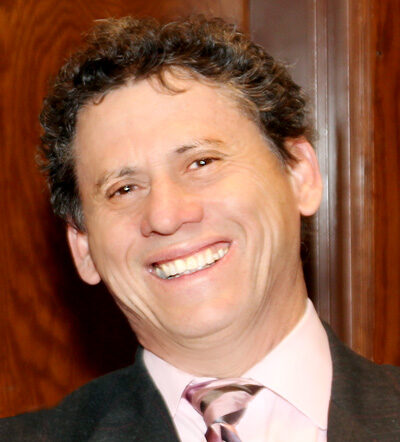
Just northeast of Pueblo on the sprawling, windswept plains of southeastern Colorado sits a facility that may well portend the future of ground transportation in America, along with a few other things. Amazingly, outside of the city, it may well be one of the best kept secrets in the state or, for that matter, the nation. The facility is the U.S. government’s Transportation Technology Center operated by the Federal Railroad Administration and this year it turns fifty years old.
For the past half century, the facility, now operated by ENSCO, a Virginia-based company that works in rail technology, avionics, national security and aerospace, has played an enormous role in the evolution of freight and passenger train safety and technology, said facility director Ruben Peña. A very practical and now everyday example of what began at the Pueblo testing site is something that is used every day by east coast commuters, the high-speed Acela train that transports passengers from Washington to New York City. The country’s only high-speed ground transportation people mover, which can reach speeds of 150 mph, was fine-tuned on the TTC’s 52 miles of track.
The facility’s mission began with relatively modest goals. Along with testing then futuristic rail concepts, it also did other things, including running tests that included staging collisions between trains and automobiles, testing the safety glass on trains and setting speed records for concept trains. One such concept train topped 255 miles per hour at the facility, still an American record. But despite this accomplishment, the government felt that the center was being underutilized and for a time considered closing it. Instead, its mission expanded.
Its latest operator, ENSCO, was awarded the $571 million dollar contract from the Department of Transportation in March 2021. The contract runs through 2041.
The facility which spans more than 50 square miles and, astonishingly, is larger in area than the entire city of Pueblo. It is habitat to grab bag of high desert wildlife. Prong-horn antelope, mule deer and bobcats are regular parts of the landscape. The cranes, dozers and locomotives seem not to bother their four-legged neighbors whose reaction is more often a lingering stare than a jump-start and sprint. So abundant in pronghorn is the region, which incidentally is the world’s second fastest land animal, it is often called ‘Antelope Alley.’
The plan for TTC, said Venezuelan expat Peña, is to fine tune the mission, test and, ideally, introduce new methods of locomotion across the country. “Right now, we’re working with companies that are advancing technology at a fast rate,” he said. Already certain car models come with extras that may soon also become standard on mega-ton rail vehicles.
“In less than five years,” he predicted, “vehicles will be talking to the (crossing) lights.” Technology will be built into cars and trucks that “will tell the car to stop until the train goes by.” It won’t eliminate all rail crossing collisions but may lead to a significant reduction in this still not uncommon accident.
Also, one day not too far into the future, Peña says technology tested and developed at the transportation testing center will usher the way for autonomous trains, trains with no human engineers. He also discussed “intramodal transportation,” a system where a variety of modes of transportation are employed to move people and freight. One possibility, he said, is “a train will take an 18-wheeler, load it onto a train where the driver can sleep comfortably, and goods and services will be moved.”
One intriguing project at the center, said Peña, is a “hydrogen-fueled train,” a train that that would become the new standard in a move toward a more environmentally friendly mode. Unlike its predecessors, the train would be powered by hydrogen. There would be zero emissions and the only thing emitted as exhaust would be steam and condensed water. “Emerging technology,” is how Peña describes it.
The 52-year-old Peña left Venezuela as a teenager with the dream of becoming a professional baseball player. His preferred positions were second base and pitcher, one, he said, who “threw a lot of junk,” a baseball term for a variety of moving pitches. But the pitch college mentors made to him and the one he took seriously made him drop the idea of starring on the diamond to one of shining in the classroom. Peña went on to earn a couple of engineering degrees that have allowed him to work in his adopted discipline in several U.S. states and a couple of foreign countries.
Today, Peña works with Pueblo Community College and CSU-Pueblo recruiting students for internships at the TCC and perhaps, later, engineering careers on these great sweeping plains. Along with recruiting young minds from Pueblo’s two colleges, he also points to the nearby and soon to be skeleton-staffed Pueblo Depot Activity, formerly known as the Pueblo Army Depot, for new blood at TCC. Beyond building a TCC workforce for the future, he also wants to make sure that the center’s rank and file, everyone from carpenters to engineers, is as diverse as possible. TCC, he said, is in a hiring mode and may triple its employee headcount.
Perhaps, one day, Peña says a train designed to handle traffic from Denver to the ski resorts or one to move passengers from Fort Collins to Pueblo will be developed by the teams at TCC. It’s not out of the question. But he wonders what it will take to retool the thinking that has handcuffed Americans to their cars. “Everybody here drives a two-thousand-pound car to move a 180-pound person,” he joked. It’s cheap and convenient to drive, he said. Until people “require it…there will be no request.”
To learn more about the Transportation Technology Center, go to Transportation Technology Center, Inc. (ttci.tech).



